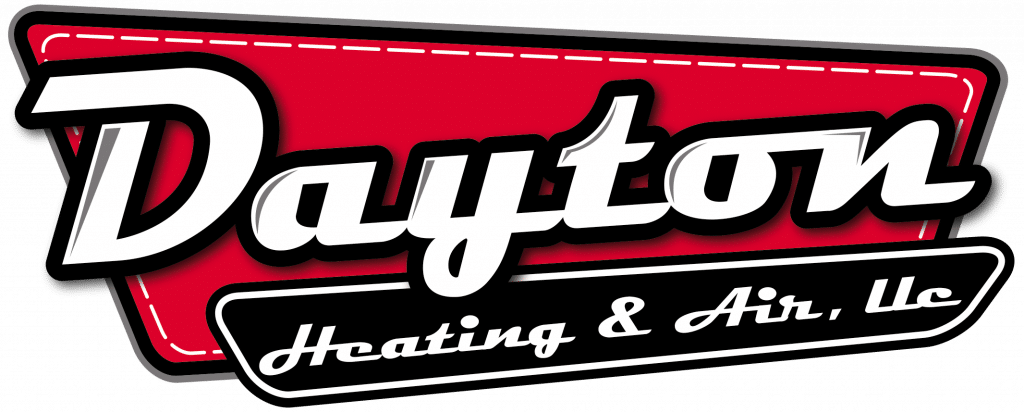3499 NW 97th Blvd unit 12, Gainesville, FL 32606
daytonheatandair@gmail.com
Light Commercial HVAC Services in Gainesville
Are you looking for a reliable HVAC company for your Gainesville business? We are here to help! At Dayton Heating & Air, you will find experienced commercial HVAC installers with top notch professionalism and reliability. We serve light commercial customers too with heating or cooling needs in office buildings, real estate offices and rental properties.
When you bring in our team for your commercial HVAC services, you can count on:
· Reliable HVAC Repairs
· Affordable HVAC installation
· 24/7 emergency services at an affordable price
· Extraordinary professionalism – we’ll set check-in dates for your next maintenance, so you don’t need to worry about it!
· Broad Range of Commercial HVAC Services
Ready to get started with a quick consultation? Give us a call today and our HVAC experts will talk you through your options.
Light Commercial HVAC Services in Gainesville
Are you looking for a reliable HVAC company for your Gainesville business? We are here to help! At Dayton Heating & Air, you will find experienced commercial HVAC installers with top notch professionalism and reliability. We serve light commercial customers too with heating or cooling needs in office buildings, real estate offices and rental properties.
When you bring in our team for your commercial HVAC services, you can count on:
- Reliable HVAC Repairs
- Affordable HVAC installation
- 24/7 emergency services at an affordable price
- Extraordinary professionalism – we’ll set check-in dates for your next maintenance, so you don’t need to worry about it!
- Broad Range of Commercial HVAC Services
Ready to get started with a quick consultation? Give us a call today and our HVAC experts will talk you through your options.
-
What Are the Four 4 Main Types of HVAC Systems?
With many different residential cooling and heating systems, the concept seems complicated to grasp for many home or business owners. Generally, HVAC (heating, ventilation, and air conditioning) systems are divided into four categories, which come in different sizes and specifications and aim to make the indoor environment comfortable. Moreover, each of these types of HVAC units has pros and cons, and knowing these factors can help you decide which is best for you. Learn about all these units with Dayton Heating & Air, LLC today!
Heating And Cooling Split Systems
Heating and cooling split systems are the most common types of HVAC systems, consisting of indoor and outdoor units. The indoor unit is responsible for cooling or heating the interior space, while the outdoor condenser disperses either cool or warm air from outside. Split-system air conditioners and heaters are popular because they can be quickly installed, maintained easily, and regulate the temperature of a room quickly. They offer property owners a quick and affordable option for home heating and cooling.
Hybrid Split System
The hybrid split system of HVACs carries similar features to the split systems but has some key differences. A furnace and an electric heat pump are used in the hybrid split system. A heat pump is a far more efficient energy source than relying just on electricity. It implies that you will only use the gas for heating on colder days. This is the best choice for your home or business in warmer regions. Hybrid systems may also be manually controlled to regulate room temperature, conserve energy, and lowering electricity expenses.
Duct-Free (Mini-Split)
The ductless mini-split system is a third type of HVAC system that allows for controlling temperatures in individual areas within the same building with several indoor units connected to an outdoor condenser. This system offers better independent control and energy conservation, as individual rooms are heated to keep exterior or unused rooms from wasting energy. It offers better independent control, which makes it an appropriate choice for hotels or venues that allow tenants to control their temperature.
Packaged Heating and Air Conditioning System
Packaged systems are HVAC systems that combine all the components of a heating and air conditioning system to cool and heat a home or business. They are usually found in a top-floor storage room, such as the attic, and are compact and efficient. These types of HVAC systems are also very efficient and easily maintained.
-
What Is the Longest Lasting HVAC System?
Some of the most popular home HVAC systems have the following life expectancies:
- Window Unit AC—10 years
- Residential single-family whole-home unit—15 years
- Heat pumps—15 years up to 25 years
- Steam boilers—15 to 35 years
- Furnace—18 years
- Radiant heaters—15 to 20 years
- Thermostats—about 10 years
Maintenance is an important step to a longer lifespan for all the above systems. Annual cleanings and tune-ups by qualified technicians keep the systems running smoothly. Annual maintenance may seem like an unnecessary expense if your system is running well, but if a minor problem is found and attended to before it becomes a critical problem, your money will be well spent.
Now that you have a better idea of how long units last on average, consider taking good care of your system to maximize its lifespan. Still, if you experience any issues with your system, call Dayton Heating & Air, LLC, your local HVAC company ready to help you with all of your maintenance and repair needs.
-
What Are the Four 4 Main Types of HVAC Systems?
With many different residential cooling and heating systems, the concept seems complicated to grasp for many home or business owners. Generally, HVAC (heating, ventilation, and air conditioning) systems are divided into four categories, which come in different sizes and specifications and aim to make the indoor environment comfortable. Moreover, each of these types of HVAC units has pros and cons, and knowing these factors can help you decide which is best for you. Learn about all these units with Dayton Heating & Air, LLC today!
Heating And Cooling Split Systems
Heating and cooling split systems are the most common types of HVAC systems, consisting of indoor and outdoor units. The indoor unit is responsible for cooling or heating the interior space, while the outdoor condenser disperses either cool or warm air from outside. Split-system air conditioners and heaters are popular because they can be quickly installed, maintained easily, and regulate the temperature of a room quickly. They offer property owners a quick and affordable option for home heating and cooling.
Hybrid Split System
The hybrid split system of HVACs carries similar features to the split systems but has some key differences. A furnace and an electric heat pump are used in the hybrid split system. A heat pump is a far more efficient energy source than relying just on electricity. It implies that you will only use the gas for heating on colder days. This is the best choice for your home or business in warmer regions. Hybrid systems may also be manually controlled to regulate room temperature, conserve energy, and lowering electricity expenses.
Duct-Free (Mini-Split)
The ductless mini-split system is a third type of HVAC system that allows for controlling temperatures in individual areas within the same building with several indoor units connected to an outdoor condenser. This system offers better independent control and energy conservation, as individual rooms are heated to keep exterior or unused rooms from wasting energy. It offers better independent control, which makes it an appropriate choice for hotels or venues that allow tenants to control their temperature.
Packaged Heating and Air Conditioning System
Packaged systems are HVAC systems that combine all the components of a heating and air conditioning system to cool and heat a home or business. They are usually found in a top-floor storage room, such as the attic, and are compact and efficient. These types of HVAC systems are also very efficient and easily maintained.
-
What Is the Longest Lasting HVAC System?
Some of the most popular home HVAC systems have the following life expectancies:
- Window Unit AC—10 years
- Residential single-family whole-home unit—15 years
- Heat pumps—15 years up to 25 years
- Steam boilers—15 to 35 years
- Furnace—18 years
- Radiant heaters—15 to 20 years
- Thermostats—about 10 years
Maintenance is an important step to a longer lifespan for all the above systems. Annual cleanings and tune-ups by qualified technicians keep the systems running smoothly. Annual maintenance may seem like an unnecessary expense if your system is running well, but if a minor problem is found and attended to before it becomes a critical problem, your money will be well spent.
Now that you have a better idea of how long units last on average, consider taking good care of your system to maximize its lifespan. Still, if you experience any issues with your system, call Dayton Heating & Air, LLC, your local HVAC company ready to help you with all of your maintenance and repair needs.
-
What To Consider When Buying A New HVAC System?
Choosing what HVAC system to invest in may seem like a daunting process, however the following considerations provide the perfect guide to choosing the HVAC system best suited for your individual needs:
- Size and Capacity: The system should be appropriately sized for your home to ensure efficiency and comfort. An oversized or undersized unit can lead to higher costs and reduced lifespan.
- Energy Efficiency: Look for systems with high SEER (for cooling) and AFUE (for heating) ratings. Energy-efficient systems might have a higher upfront cost but can save money in the long run as they are proven to have a lengthier life-span.
- Type of System: Depending on your region and needs, you might choose between split systems, packaged units, heat pumps, or geothermal systems.
- Installation: Proper installation is vital. A well-regarded HVAC contractor will ensure that your system performs as intended.
- Budget: Consider both the initial purchase and long-term operational costs.
- Brand Reputation: Always do your homework and research brands for reliability and customer satisfaction.
-
How Much Does A New HVAC System Add To The Value Of A House?
A new HVAC system can significantly enhance a home's market appeal. According to a research done by Zillow, the premium or value added for central air conditioning in Florida is about 3.4% of home value and goes up to 11.6% in New York. Additionally, a case study supported by the Better Buildings Neighborhood Program indicates that energy-efficient homes, which include efficient HVAC systems, have an average premium of 9%.
Not only is home value increased, Energy Star states on their website that property owners save an average of 15% of their heating or cooling costs by having insulated and air sealed homes. However, the exact value addition for every home varies based on location, the age of the home and HVAC system, and energy efficiency.
-
How HVAC Systems Work?
HVAC (Heating, Ventilation, and Air Conditioning) systems regulate indoor environmental comfort by providing thermal control and acceptable indoor air quality. The fundamental process involves:
- Heating: Furnaces or boilers typically generate warmth by burning fuel. The heat is then distributed via radiators, heated floors, or ductwork.
- Cooling: Air conditioners and heat pumps extract heat from indoor air and expel it outdoors, thereby cooling the interior.
- Ventilation: This ensures the replacement of indoor air with fresh outdoor air, removing moisture, odors, smoke, dust, and other contaminants.
- Distribution: Through ductwork, conditioned air is circulated throughout the home.
- Control: Thermostats regulate and maintain the desired temperature settings.
For a comprehensive understanding, the U.S. Department of Energy offers an in-depth explanation of how HVAC systems integrate into a whole-house system approach to energy efficiency.

Location


Call
Request Same-Day Quote
Contact Us
We will get back to you as soon as possible.
Please try again later.
Request Same-Day Quote
Contact Us
We will get back to you as soon as possible.
Please try again later.

Location
Working Hours
- Mon - Fri
- -
- Saturday
- -
- Sunday
- Closed
CAC1819132



